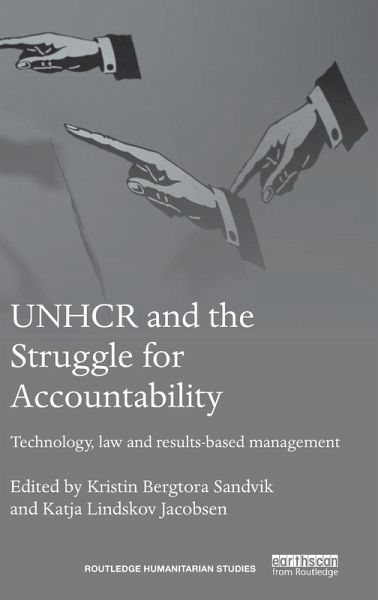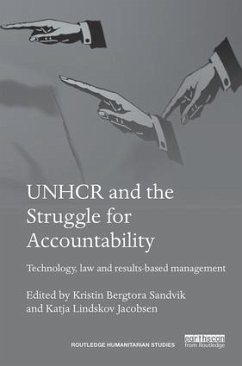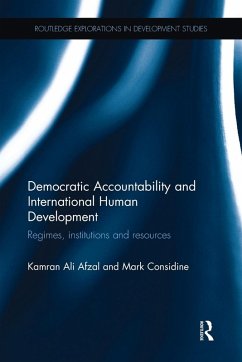
UNHCR and the Struggle for Accountability
Technology, law and results-based management
Herausgeber: Sandvik, Kristin; Jacobsen, Katja

PAYBACK Punkte
98 °P sammeln!
Despite the key importance of accountability for the legitimacy of humanitarian action, inadequate academic attention has been given to how the concept of accountability is evolving within the specific branches of the humanitarian enterprise. Up to now, there exists no comprehensive account of what we label the 'technologies of accountability', the effects of their interaction, or the question of how the current turn to decision-making software and biometrics as both the means and ends of accountability may contribute to reshaping humanitarian governance. UNHCR and the Struggle for Accountabil...
Despite the key importance of accountability for the legitimacy of humanitarian action, inadequate academic attention has been given to how the concept of accountability is evolving within the specific branches of the humanitarian enterprise. Up to now, there exists no comprehensive account of what we label the 'technologies of accountability', the effects of their interaction, or the question of how the current turn to decision-making software and biometrics as both the means and ends of accountability may contribute to reshaping humanitarian governance. UNHCR and the Struggle for Accountability explores the UNHCR's quest for accountability by viewing the UNHCR's accountability obligations through the web of institutional relationships within which the agency is placed (beneficiaries, host governments, implementing partners, donors, the Executive Committee and UNGA). The book takes a multidisciplinary approach in order to illuminate the various layers and relationships that constitute accountability and also to reflect on what constitutes good enough accountability. This book contributes to the discussion regarding how we construct knowledge about concepts in humanitarian studies and is a valuable resource for academics, researchers and professionals in the areas of anthropology, history, international relations, international law, science, technology studies and socio-legal studies.













